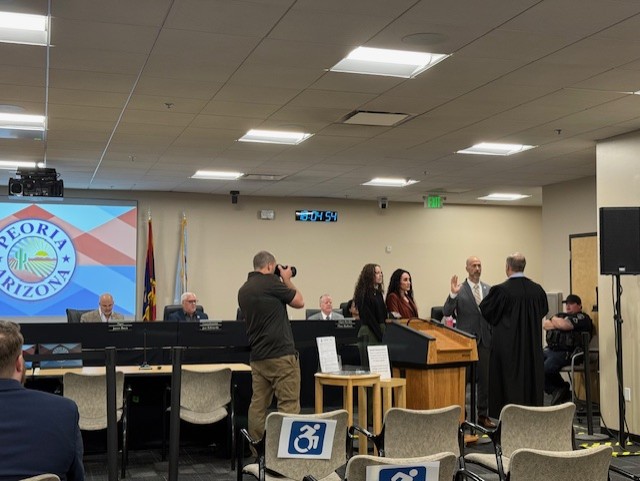(Disclosure: Rose Law Group represents Ann Siner of My Sister’s Closet and Judge John Buttrick in their litigation efforts against 208.)
By AZ Law
UPDATE, 8/19 at 10:15am:
The Invest In Ed initiative passed by Arizona voters last year to provide additional funding for education via a tax surcharge on wealthiest taxpayers is largely unconstitutional. The Opinion handed down by a 6-1 majority of the Arizona Supreme Court this morning holds that the initiative cannot get around expenditure limitations in the Constitution. Therefore, revenues raised may largely remain un-spendable.
The majority opinion is written by Chief Justice Robert Brutinel noted that the tax surcharge will currently remain in place: “However, because we cannot determine at this preliminary stage of the case the extent to which, if any, such funding will exceed the constitutional expenditure limitation, we decline to enjoin the imposition of the tax pending further proceedings in the trial court.”
So, the Supreme Court has handed it back to the trial court to make that determination based on the restrictions it set forth.
The majority determines that the severability clause – a common provision that suggests that if one portion of a law runs afoul of the Constitution that the remaining parts remain in place – does not save Prop. 208. “However, the act intended to drastically increase education spending, which cannot be done without the invalid provision. Consequently, the severability clause does not save Prop. 208.”
Vice Chief Justice Ann Timmer dissented from that part of the decision, stating that the majority set up a test which was not asked for by the plaintiffs nor justified.
“The Supreme Court confirmed today that Prop 208 is facially unconstitutional. Given the instructions issued by the Court, it is very likely that Prop 208 will be enjoined in the near future. We will continue to push to see that happen. Arizona’s Legislative Council advised the proponents of Prop 208 that the law was “likely invalid” before the initiative was certified for the ballot. It is unfortunate that this defective initiative was ever presented to the voters.’
“The Supreme Court noted that there is no statutory authority to spend approximately 85% of the funds raised by Prop 208 and that fund monies could remain perennially sequestered, languishing in state accounts unspent on education. That advocates continued to support Prop 208 in light of this fact belies their toxic motivations. Although it was sold to voters as an education measure, Prop 208 has always really been about antagonizing successful businesses and individuals.”
–Logan Elia, Rose Law Group Litigation Partner, who is leading on the representation of Ann Siner and Judge John Buttrick.








